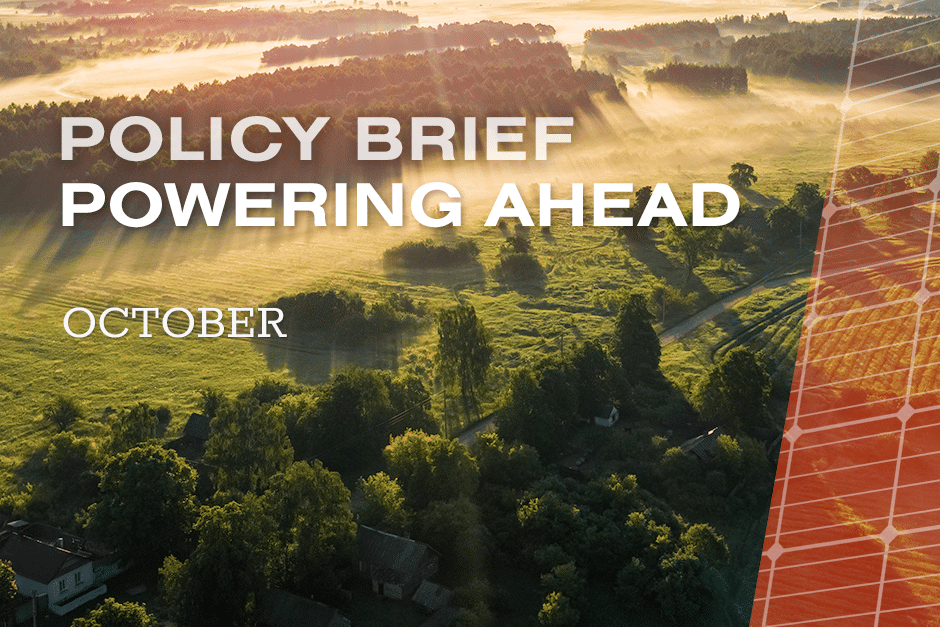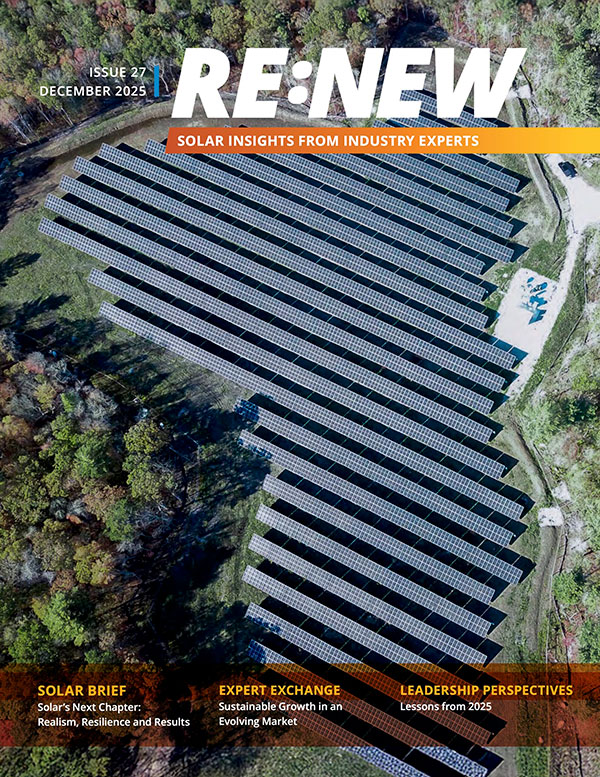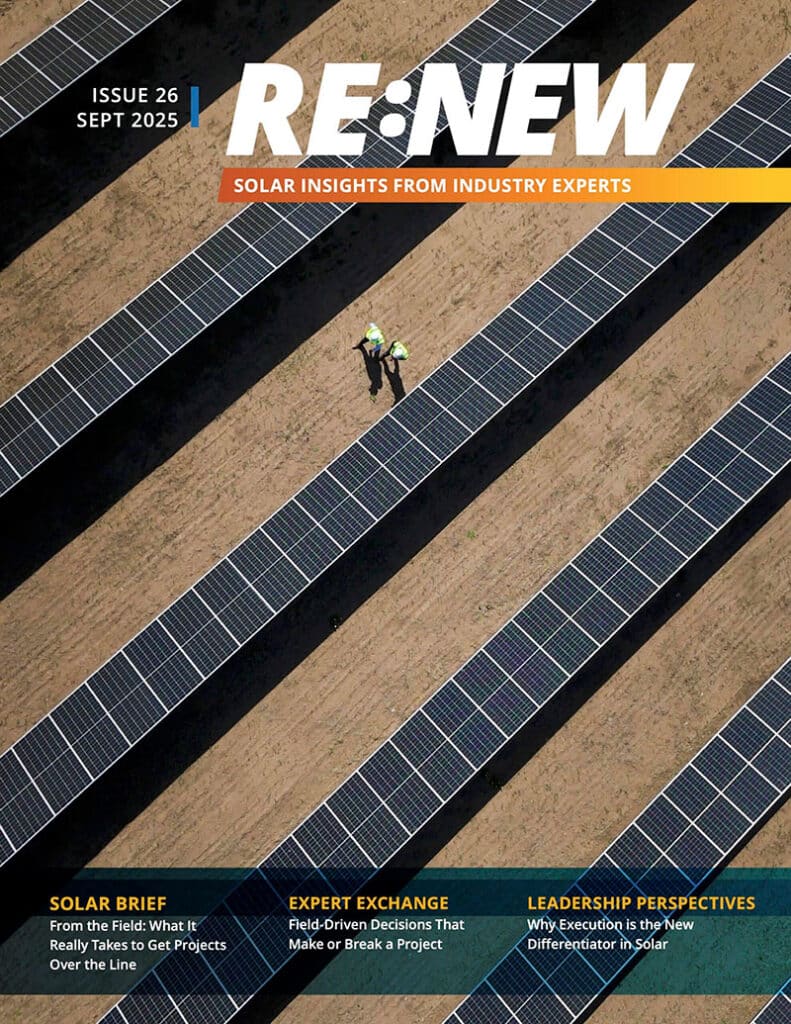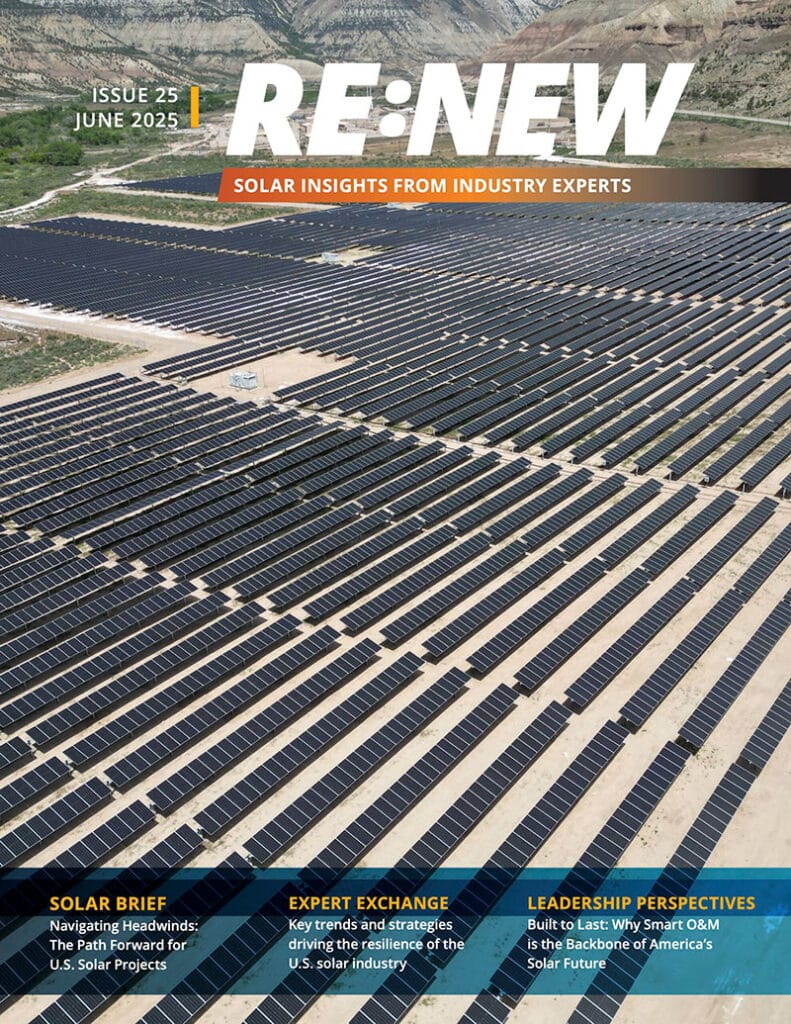With November’s election fast approaching, the future of clean energy legislation, particularly the Inflation Reduction Act (IRA), remains in focus. While the political debate around the IRA continues, the renewable energy industry is bracing for potential changes depending on the election outcome. Regardless of who prevails, one thing is certain: the need for clean energy investment to drive economic growth will endure, and the solar industry will remain a key player in shaping that future.
As we look ahead, federal and state-level developments will define the direction of community solar and renewable energy in the coming months. Here’s a look at the most critical updates across the country.
Federal Updates: The IRA and Emerging Challenges
With only weeks to go before the election, the IRA remains a contentious issue. Some Republicans advocate for its repeal, citing concerns over market distortions and impacts on small businesses. However, other members of the GOP are urging that certain provisions, especially those tied to energy tax credits and domestic manufacturing, be preserved.
The 2024 Low-Income Communities Bonus Credit (LICBC) program has undergone significant updates as well. New technologies like geothermal, hydro, and nuclear fission are now eligible, marking a broader scope of what qualifies for energy incentives. Further changes are being considered, including raising the minimum project discount and exploring alternative benefits to reach disadvantaged communities more effectively.
Northeast Updates: Progress Despite Delays
In Maine, the implementation of the state’s Distributed Solar and Energy Storage Program has been delayed to early 2025, with a focus on low-income communities. The delay is largely due to the timing of federal funding under the Solar For All initiative, which will drive project procurement early next year.
Additionally, on October 18, 2024, the Maine Governor’s Energy Office (GEO) announced that the U.S. Department of Energy awarded the state a $65 million grant under the Grid Resilience and Innovation Partnerships (GRIP) Program. This funding will support the Flexible Interconnections and Resilience for Maine (FIRM) project, a collaboration between Maine, Central Maine Power (CMP), and Versant Power. The initiative will deploy advanced technologies to strengthen the grid, enhance voltage regulation, and increase transmission capacity, enabling more clean energy to flow through the state’s infrastructure.
Massachusetts is also seeing movement on key climate policies. Governor Healey’s Supplemental Budget, which includes energy storage and permitting reforms, remains under review. On the regulatory side, the Department of Energy Resources is moving forward with its update to the SMART Program, with draft regulations expected later this year and a revamped program anticipated by mid-2025. Meanwhile, Eversource has proposed enrolling 234 MW of community solar capacity over the next three years, signaling optimism for further growth.
Mid-Atlantic Updates: Mixed Results on Solar Initiatives
In Pennsylvania, the Community Solar bill (HB 1842) has limited prospects of passing before the legislative session ends, though there remains a slim chance it could be integrated into a broader utility regulation reform package. On a more positive note, New Jersey’s Board of Public Utilities (BPU) has finalized rules for the Permanent Community Solar Program, introducing a host of amendments our team is cautiously reviewing.
Maryland continues to refine its community solar and net metering policies, with the first phase of Community Solar regulations approved in late September. However, the focus has now shifted to finalizing the second phase, which addresses billing and crediting, with implementation targeted for 2026. Meanwhile, Virginia’s State Corporation Commission is reviewing public comments on shared solar program updates, with final regulations expected by early 2025.
Central Updates: Ongoing Challenges and New Opportunities
In Minnesota, Standard Solar and other industry leaders have filed motions to appeal the state’s Public Utilities Commission (PUC) decision to transition community solar projects from the Applicable Retail Rate (ARR) to the Value of Solar (VOS) rate. The case is expected to be consolidated by the end of October.
Meanwhile, Georgia and Louisiana are making headway with community solar initiatives. Georgia’s Environment, Utility, and Technology Committee held an informational hearing on the benefits of community solar, signaling potential progress for next year. In Louisiana, the New Orleans City Council is overseeing a revision of Entergy’s Community Solar implementation, with updated rules expected in November.
Western Updates: Setbacks in California, Expansion in New Mexico
The news in California has been less favorable, with Governor Newsom vetoing SB 1374—a bill designed to reverse a recent decision limiting the self-consumption of onsite solar for multi-meter properties. The veto marks a setback for advocates of virtual net metering, particularly for apartment buildings and public schools.
However, New Mexico is seeing potential expansion of its community solar program. The Public Regulatory Commission (PRC) is expected to make a decision by the end of October on whether to expand the program by an additional 300 MW. While major utilities favor delaying expansion, industry stakeholders are pushing for more immediate growth, reflecting a divide in the approach to solar deployment in the state.
Looking Ahead: Preparing for Post-Election Impacts
As the election nears, the landscape of solar policy remains in flux. While the future of the IRA is uncertain, the ongoing need for renewable energy solutions ensures that investment in the solar industry will continue. The coming months will bring pivotal decisions at both the federal and state levels, shaping the future of community solar and the broader renewable energy movement in the U.S.
Stay tuned for next month’s update as we continue to monitor these critical developments.
More Recent Blog Posts
The Budget Barrier: A New Financial Path for School Solar
February 24, 2026
Standard Solar · 3 min read
Massachusetts: A Visionary State in Community Solar Growth
February 13, 2026
Standard Solar · 3 min read
Unlocking Student Imagination with Solar Energy
January 20, 2026
Standard Solar · 4 min read
Delivering on Our Promise: 2025 in Review
December 11, 2025
Scott Wiater · 3 min read





Share